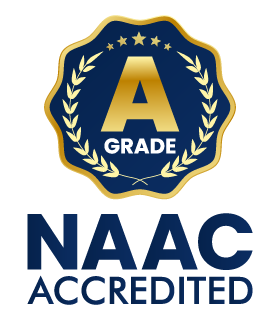About Department
Vision & Mission
Objectives
Electrical Engineering students are prepared for technical careers in the rapidly growing sectors of electronics, computers and microprocessors, instrumentation, and electrical equipment. The primary goal is to establish a solid theoretical and practical foundation in electrical and electronic circuits, digital circuits, computers, electrical machinery, and programmable logic controls.The curriculum is meant to help students achieve the following learning objectives by the time they graduate:
- Demonstrate a thorough understanding of electrical and electronics engineering technology practices to support their employer's design, application, installation, production, operation, and maintenance needs,
- Apply fundamental mathematical and scientific principles to solve technical problems in fields like as analogue and digital circuit analysis, microprocessors, programmable logic control, and electrical machines,
- Utilize computers and software in a technical environment,
- Demonstrate written and oral communication skills.
- Work effectively as an individual and as a member of a multidisciplinary team,
Graduate Attributes
-
Academic excellence: Ability to identify key questions, research and pursue rigorous evidence-based arguments
-
Critical Thinking and Effective communications: Analysis and evaluation of information to form a judgement about a subject or idea and ability to effectively communicate the same in a structured form.
-
Global Citizenship: Mutual understanding with others from diverse cultures, perspectives and backgrounds
-
Life Long Learning: Open, curious, willing to investigate, and consider new knowledge and ways of thinking
Program Educational Outcomes
-
PEO1: Core Technical Competence: Graduates will apply their knowledge of electrical engineering fundamentals to solve real-world engineering problems in areas such as power systems, control systems, electronics, and electrical machines.
-
PEO2: Professional Development and Lifelong Learning: Graduates will continuously enhance their skills through advanced education, professional certifications, or self-learning to adapt to rapidly evolving technologies and global challenges.
-
PEO3: Successful Career and Leadership: Graduates will pursue successful careers in industry, academia, or entrepreneurship, demonstrating effective teamwork, leadership, and communication skills.
-
PEO4: Ethics and Social Responsibility: Graduates will conduct themselves in a professional, ethical, and socially responsible manner, understanding the impact of electrical engineering solutions in a global, economic, environmental, and societal context.
-
PEO5: Innovation and Problem Solving: Graduates will engage in research, innovation, or product development, contributing to technological advancements and solving multidisciplinary engineering problems using modern tools and practices.
Program Outcomes
|
After completion of the programme the Graduate will be able to: |
|
|
PO 1 |
Domain knowledge: Apply the knowledge of mathematics, science, engineering fundamentals, and an engineering specialization to the solution of complex engineering problems. |
|
PO 2 |
Problem analysis: Identify, formulate, research literature, and analyze complex engineering problems reaching substantiated conclusions using first principles of mathematics, natural sciences, and engineering sciences. |
|
PO 3 |
Design/development of solutions: Design solutions for complex engineering problems and design system components or processes that meet the specified needs with appropriate consideration for the public health and safety, and the cultural, societal, and environmental considerations. |
|
PO4 |
Conduct investigations of complex problems: Use research-based knowledge and research methods including design of experiments, analysis and interpretation of data, and synthesis of the information to provide valid conclusions. |
|
PO 5 |
Modern tool usage: Create, select, and apply appropriate techniques, resources, and modern engineering and IT tools including prediction and modeling to complex engineering activities with an understanding of the limitations. |
|
PO 6 |
The engineer and society: Apply reasoning informed by the contextual knowledge to assess societal, health, safety, legal and cultural issues and the consequent responsibilities relevant to the professional engineering practice. |
|
PO 7 |
Environment and sustainability: Understand the impact of the professional engineering solutions in societal and environmental contexts, and demonstrate the knowledge of, and need for sustainable development. |
|
PO 8 |
Ethics: Apply ethical principles and commit to professional ethics and responsibilities and norms of the engineering practice. |
|
PO 9 |
Individual and team work: Function effectively as an individual, and as a member or leader in diverse teams, and in multidisciplinary settings. |
|
PO 10 |
Communication: Communicate effectively on complex engineering activities with the engineering community and with the society at large, such as, being able to comprehend and write effective reports and design documentation, make effective presentations, and give and receive clear instructions. |
|
PO 11 |
Project management and finance: Demonstrate knowledge understanding of the engineering and management principles and apply these to one’s own work, as a member and leader in a team, to manage projects and in multidisciplinary environments. |
|
PO 12 |
Life-long learning: Recognize the need for, and have the preparation and ability to engage in independent and life-long learning in the broadest context of technological change. |
Program Specific Outcomes
| After completion of the programme the Graduate will: | |
|---|---|
| PSO 1 | Apply knowledge of power system configuration, electrical equipment and protection practices to the design and specification of electrical generation, transmission, distribution and utilization systems. |
| PSO 2 | Design, analyse, test and evaluate the performance of the electrical machines and transformers. |
| PSO 3 | Develop the expertise in efficient conversion and control of electrical power by power electronics from available form to the required form. |
| PSO 4 | Utilize statistics & probability, discrete mathematics, applied differential equations and transform methods to analyze the electrical/electronic systems. |
| PSO 5 | Get awareness about the impact of electrical engineering solutions in societal, environmental context and professional ethics in light of human values. |
Faculty profile
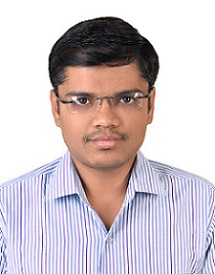
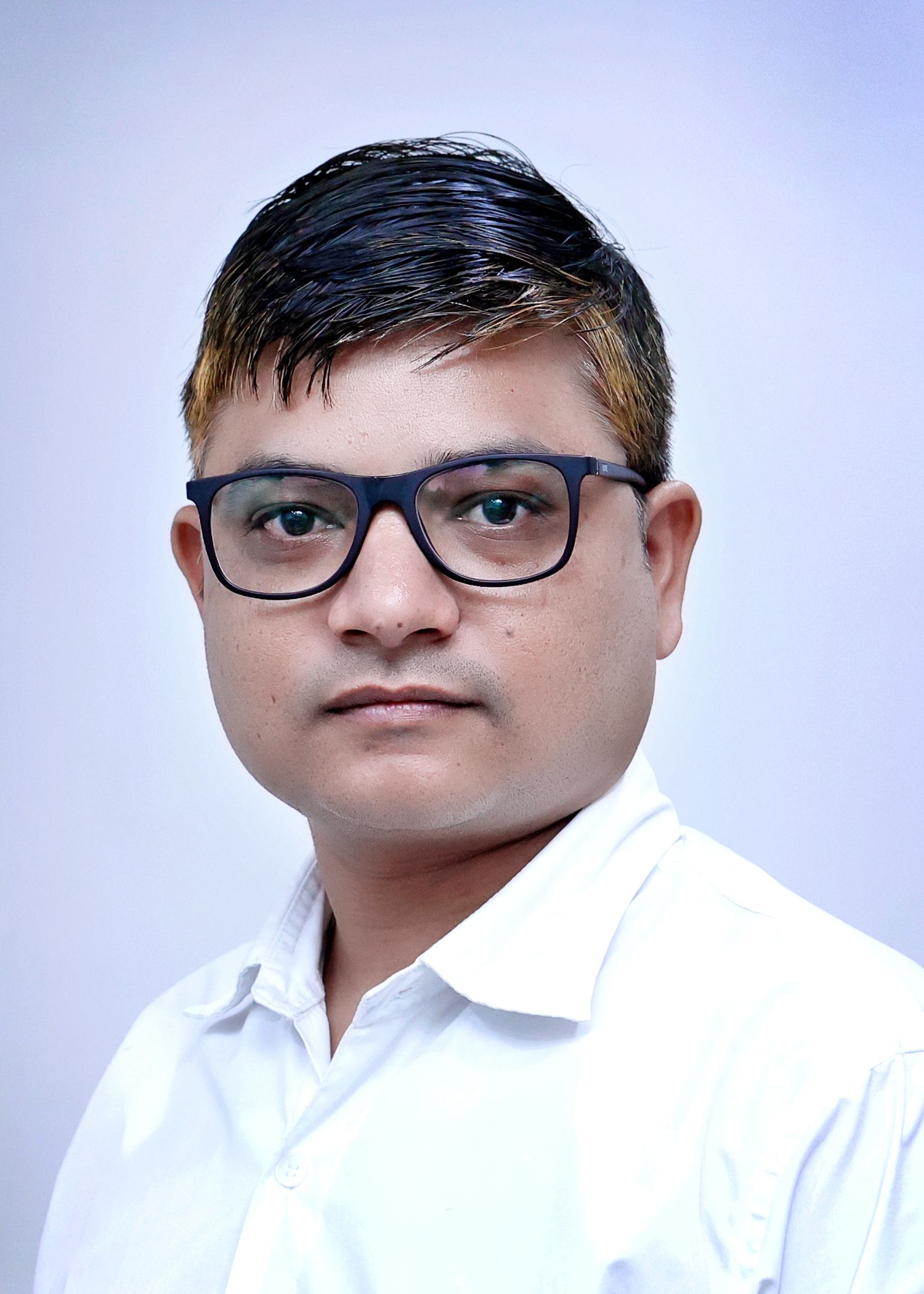

Scope
- Electrical Engineering is a core and evergreen branch of Engineering.
- There is a huge demand of electrical engineers in developed & under-developed countries for power generation, power transmission, power distribution, manufacturing units and research in renewable energy sources.
- The Government of India is taking keen interest in promoting renewable energy resources.
- It clearly indicates that the future of power sector in India is excellent in the field of “Green Energy”.
- According to the current scenario; career in electrical engineering is considered as hopeful in government as well as private sectors.
- Prominent alumni of the department are working with well known organizations like PGVCL, GETCO, Reliance Industries, Nayara Energy, Nirma, Tata Chemicals, TCS, ABB, L&T, Suzlon etc.
- Atmiya University always encourages and supports the students to become Aatm Nirbhar(entrepreneur)!
-
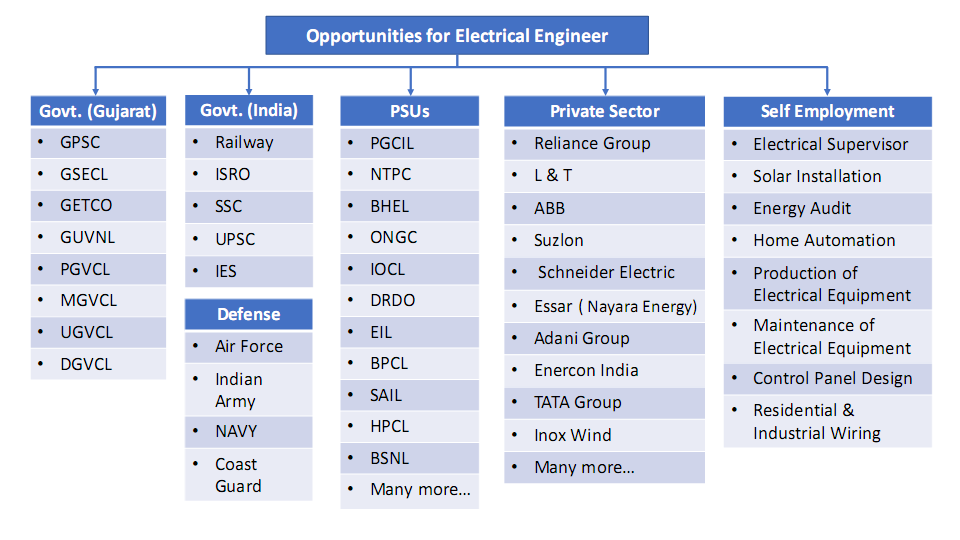
Research and Publication
| Sr. | Particular | Qty. |
|---|---|---|
| 1 | Publication in International Journal | 7 |
| 2 | Publication in International Conference Proceeding | 17 |
| 3 | Publication in National Journal | 2 |
| 4 | Publication in National Conference Proceeding | 22 |
| 5 | Best Research Paper Award | 7 |
Event
| Sr. No. | Event Name | Event Date | Photo Gallery |
|---|---|---|---|
| 1 | One Day Theory-cum-Practical Energy Conservation Awareness Workshop | 17-10-2024 | View |
| 2 | Guest Lecture on Guidance for Merchant Navy Awareness | 31-01-2024 | View |
| 3 | Pedagogy Session | 07-10-2023 | View |
| 4 | What Industry Needs in Present Scenario | 07-09-2022 | View |
| 5 | Awareness Session on IELTS 2022 | 25-08-2022 | View |
| 6 | Syneargy transformer Visit | 17-03-2022 | View |
| 7 | 400kv Hadala Visit | 16-03-2022 | View |
| 8 | Overseas Education | 21-02-2022 | View |
| 9 | Electrical Installation Visit | 17-02-2022 | View |
| 10 | Carrer Options after Engineering | 14-02-2022 | View |
| 11 | Project Fair | 28-03-2019 | View |
| 12 | Science Fair | 05-01-2019 | View |
| 13 | Sardar Sarovar Visit | 12-10-2018 | View |
| 14 | Sport Day | 10-03-2018 | View |
| 15 | MSME Expert Talk | 14-09-2017 | View |
| 16 | 2017 SVUM Trade Fair | 14-02-2017 | View |
| 17 | 2016 May 10 Electronics Van | 10-05-2016 | View |
| 18 | 2014 Conference | 07-03-2014 | View |
Department Infrastructure
| Electrical Machine Lab | 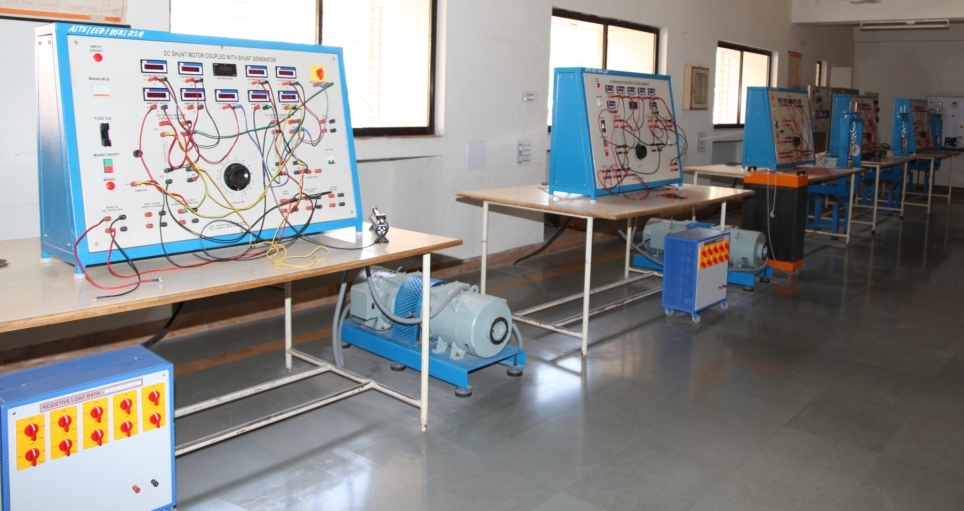 |
| High Voltage Engineering Lab | |
| Wind Energy Lab | |
| Power System Protection Lab | 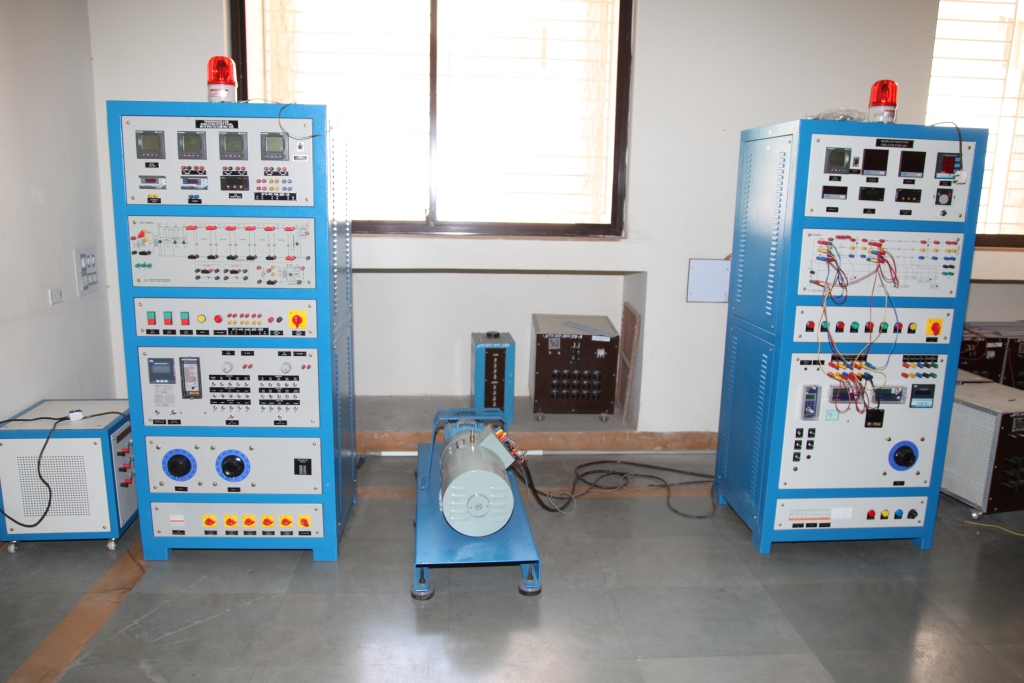 |
| Solar Energy Lab | 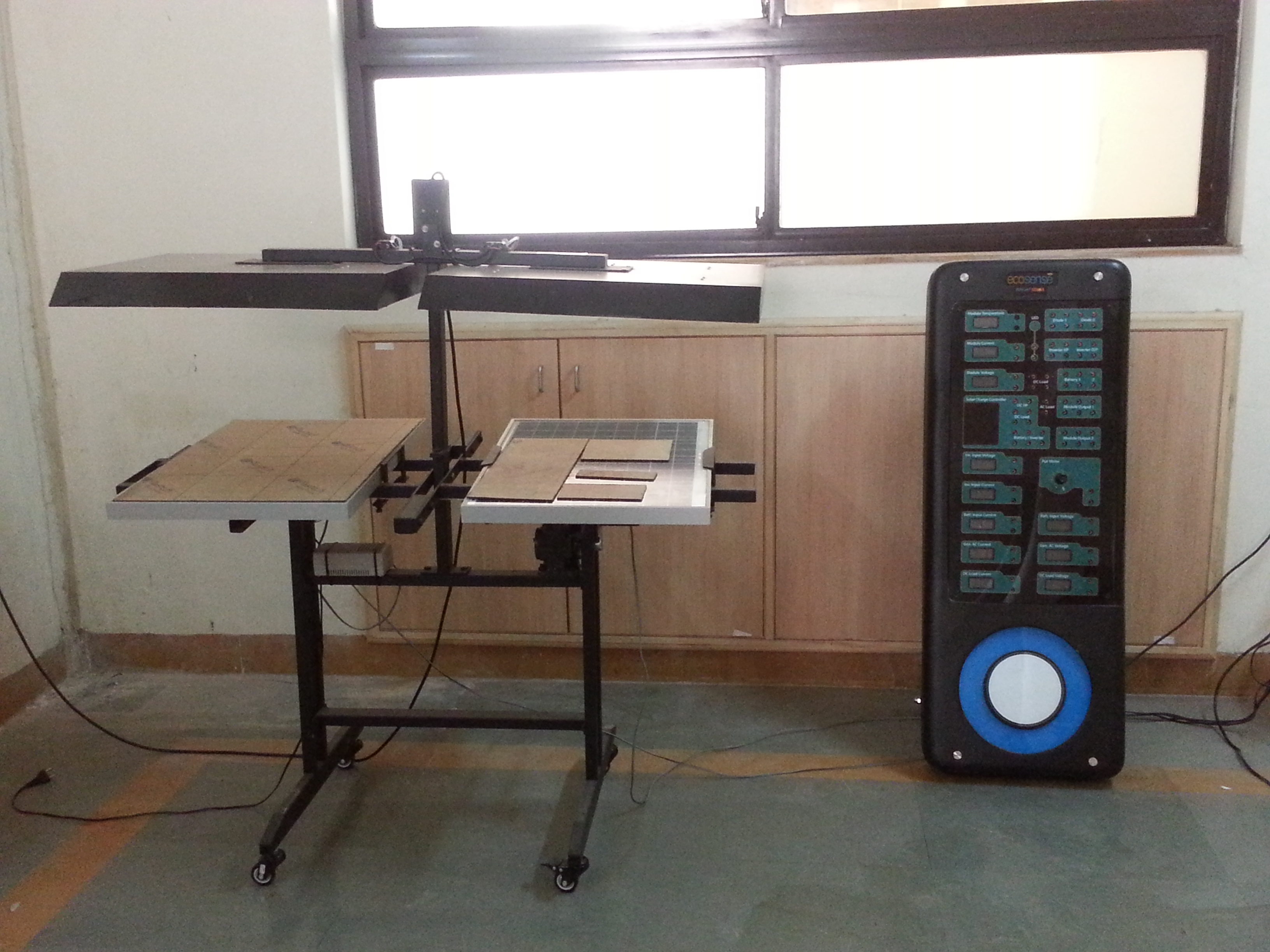 |
Placement
Achievements
| SR | NAME OF STUDENT | PROGRAM | PASS OUT YEAR | ACHIEVEMENT |
|---|---|---|---|---|
| 1 | Vyas Nirvisha Vinodray | M.E. (Electrical - PEED) | 2014 | GTU Gold Medalist |
| 2 | Jadav Krishnarajsinh Ajaykumar | M.E. (Electrical - PEED) | 2015 | GTU Gold Medalist (Branch Topper + Course Topper) |
| 3 | Shrivastava Ankitkumar Jayprakash | M.E. (Electrical - PEED) | 2016 | GTU Gold Medalist |
| 4 | Patel Monika Devrajbhai | M.E. (Electrical - PEED) | 2019 | GTU Gold Medalist |
| 5 | Sapariya Kishan Chhaganbhai | B.Tech Electrical | 2023 | Award- RK University Best InnovativeEngineering Project Award (ISTE) |
